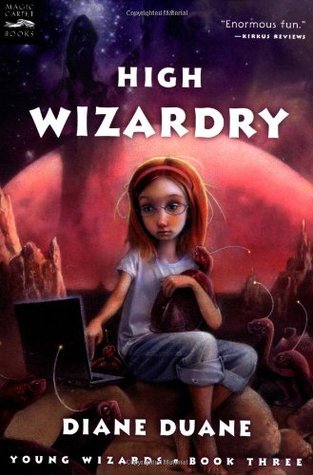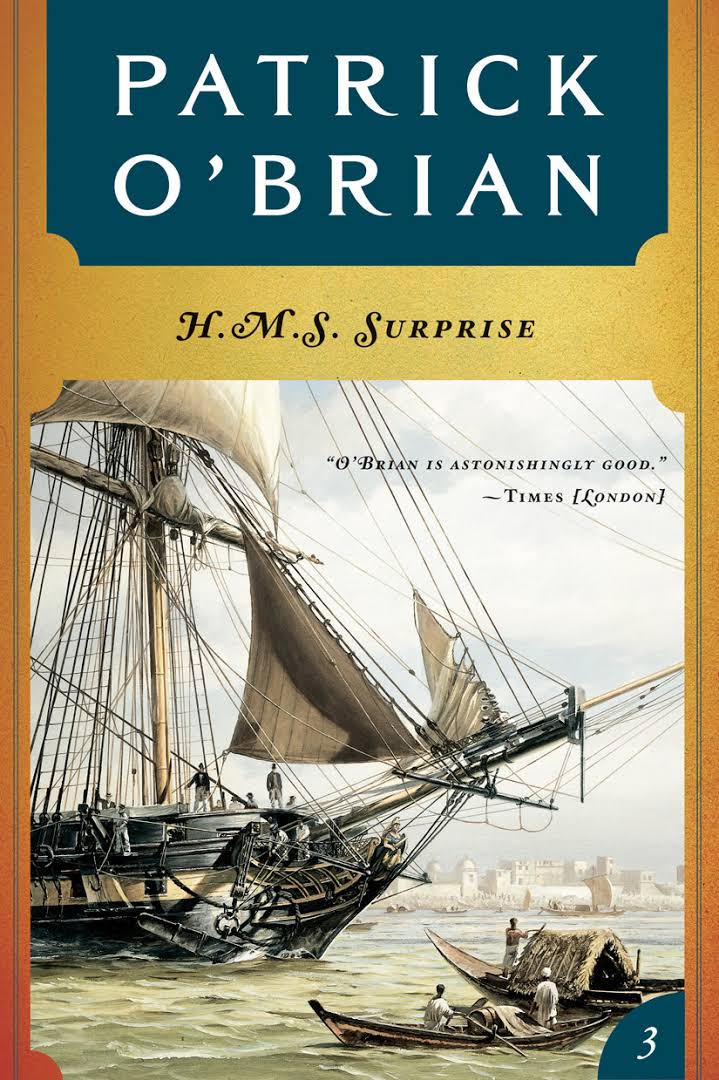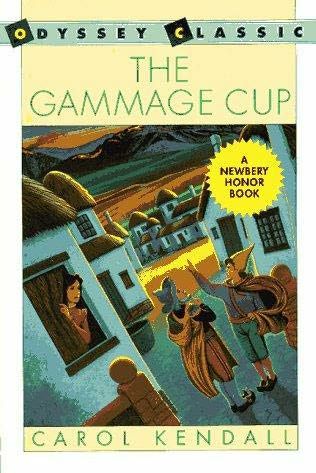[button color=”black” size=”big” link=”http://affiliates.abebooks.com/c/99844/77798/2029?u=http%3A%2F%2Fwww.abebooks.com%2Fservlet%2FSearchResults%3Fisbn%3D9780152012410″ target=”blank” ]Purchase here[/button]
High Wizardry
by Diane Duane
The third novel of seven (so far) in the Young Wizards series sends teen wizards Nita and Kit on a perilous adventure through outer space. This time, they are tracking Nita’s kid sister Dairine, who has just become an incredibly powerful novice wizard armed with a laptop computer and a beta-software version of the wizard’s manual.
Bookish, computer geek Dairine’s dream is to fight Darth Vader (this book is set in 1985, remember), but she has little reckoned on the Lone Power, a.k.a. Starsnuffer, who wants to spread death and darkness throughout the universe. After the ultimate culture shock on a really, really alien planet, Dairine is pursued by Bug Eyed Monsters (BEMs for short) from world to world, until she arrives on a planet-sized silicon chip in space where her Ordeal is to take place. There she creates a new form of life that may bring about the downfall of the Lone Power… or sudden death for the whole universe.
Meanwhile, Nita and Kit follow in Dairine’s wake, accompanied by their smart-beaked macaw friend Peach. As the two parties finally converge in the final confrontation against the Lone Power, once again Duane creates a terrific climax full of beautiful language, sacrifice, redemption, and transforming love.
Fans of C. S. Lewis may recognize the idea of a reenactment of the First Temptation and Fall (with, the reader hopes, different results) from his space novel Perelandra. Fans of classical mythology will be riveted by the references to the Prometheus legend. Eagle-eyed theologians and philosophers will be fascinated by Duane’s weird combination of atheistic evolutionism (complete with big bang theory and long ages) with a cosmos that contains figures nearly identical to biblical angels– both of light and of darkness.
Even a hint of God slips in, in an impersonal way; and as in the earlier books Duane lumps biblical data with “other myths” as imperfect versions of the real story, or as a process that is repeatedly carried out in the universe’s many worlds and long history. So teen sci-fi fans may also be reminded of Madeleine L’Engle. It’s interesting how a “Christian” author and one who, to my imperfect knowledge, is an atheist, so nearly approach each other’s vision of the world when they turn it into science fiction. And the outcome of the young wizards’ battle with the Lone Power will leave many readers itching to find out what happens in the subsequent books (A Wizard Abroad, etc.)
Favorite line: “Fairest and fallen,” Nita said, “greeting and defiance.”




